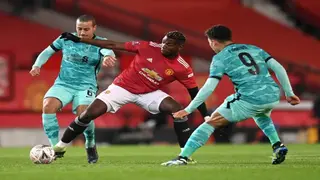Where to watch the FIFA World Cup in 2022: A guide on how to watch this year’s World Cup
Football
Caster Semenya's lengthy quest to compete once more has reached its final hurdle.
The two-time Olympic champion has been barred from competing in her favoured 800m event due to a rule change, which was then further enforced by a ruling by the Court of Arbitration for Sport (CAS).
However, she has appealed the decision.

Hey there: stay informed and follow us on Google News!
The South African athlete was barred from competing in the event after being classed as having ‘differences in sexual development (DSD).’
As per the rules set out by World Athletics, she is required to take meds to lower her testosterone levels to compete.
Where to watch the FIFA World Cup in 2022: A guide on how to watch this year’s World Cup
Football
Semenya refused, so she was forced to compete in the longer-distance 5000m race.
Her last big competition was the 5,000m race at the World Athletics Championships in Eugene, Oregon, in April 2022. Semenya failed to make it out of the heats in the event.
With the South African refusing to take the matter lying down, the European Court of Human Rights (ECHR) will now hear the case, News24 reported.
The ECHR will begin a hearing on Wednesday, May 15, to decide whether she should be required to lower her testosterone in order to compete.
The verdict is not expected for a few months, but the decision will be binding.
The South African will hope that the ECHR will rule in her favour again, as they did last year.
In July 2023, a panel from the ECHR ruled that the decision by CAS constituted discrimination and a violation of her privacy, Human Rights Watch noted.
The biggest World Cup snubs: A list of footballers left out of their countries’ World Cup squad
Football
While the court ruled in her favour, it did not overrule the decision, meaning she is still required to lower her testosterone levels in order to compete.
Speaking after the outcome of that case, Semenya expressed her hope that the decision would ensure the respect of athletes' human rights.
"My hope is that World Athletics, and indeed all sports organisations, will take account of the ECHR's decision and ensure that the dignity and human rights of athletes are respected," she said.
South Africa’s Semenya is not the only female athlete who has had trouble with World Athletics.
The stringent rules regarding testosterone levels have forced some stars to quit or find a new event.
Sports Brief looks at Semenya and four athletes barred from running due to their testosterone levels.